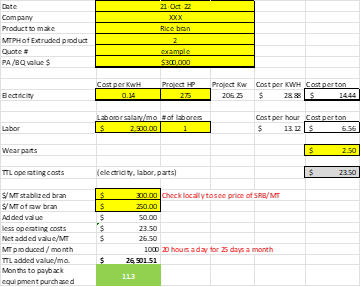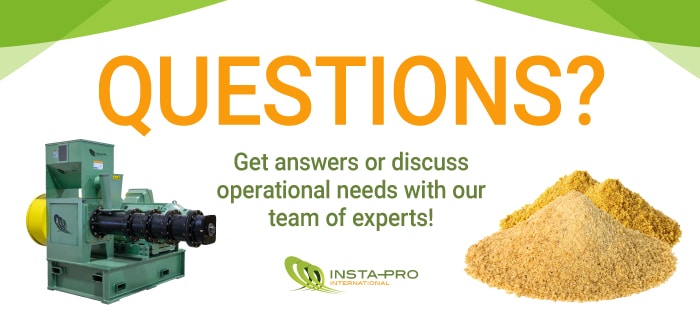Global Rice Bran Markets

In previous blogs, we discussed the process and benefits of extruded rice bran and how extrusion improves digestibility of rice bran in broilers. Today I will review the global demand along with the economic feasibility for purchasing a rice bran stabilization facility.
For the past 2 years, the global market for rice bran has grown. In 2021, Vietnam became the number one exporter of rice bran. Other countries currently exporting include Germany, United States, Belgium, and Australia. China was the top importer, followed by Oman, Germany, Luxembourg, and United States.
To make a case to stabilize the rice bran, you must check locally to see what the market prices per ton of raw rice bran and stabilized rice bran are. Take this cost and add the processing cost; then you will see what margin you can expect to determine if you can make a profitable business. Typically, in high-shear dry extrusion, with electricity, water, and labor costs, we calculate $25 per ton of input costs (varies by location).
Once you have calculated the feasibility of producing rice bran, you have three options:
- Sell the stabilized bran locally for feed. As we know, broilers will have increased performance. The benefit of stabilized bran is its longer 9-month shelf life, so you can sell when the demand is higher and capture a premium price.
- Export stabilized bran to one of the importing countries mentioned above.
- Further process the stabilized bran by using a mechanical oil press to remove 50% of the oil. Then you have low fat stabilized rice bran and crude rice bran oil.
As far as what it takes to set up a plant, a rice bran extrusion line is quite simple. It includes an Insta-Pro Model 2000 high shear dry extruder, a conveyor, and a cooler. For sizing, we like to use the 10% approach. If you have a forty ton per hour rice mill, you want a four ton per hour of rice bran extrusion capability. For a 20-ton mill, a two ton an hour extrusion line.
Here is a sample ROI for a rice bran extrusion line:

In this scenario, the price difference between raw and stabilized bran is $50 per ton. With operating costs of $23.50, added value is $26.50 per ton, so the payback on investment is 11.3 months, a good ROI!
If you are interested in adding value to your raw rice bran, we would just need to know your electricity and labor cost and local price of raw bran and stabilized bran. Then we can estimate your own ROI. If you have further questions, please read our other rice bran blogs, or contact your Insta-Pro sales rep today.





